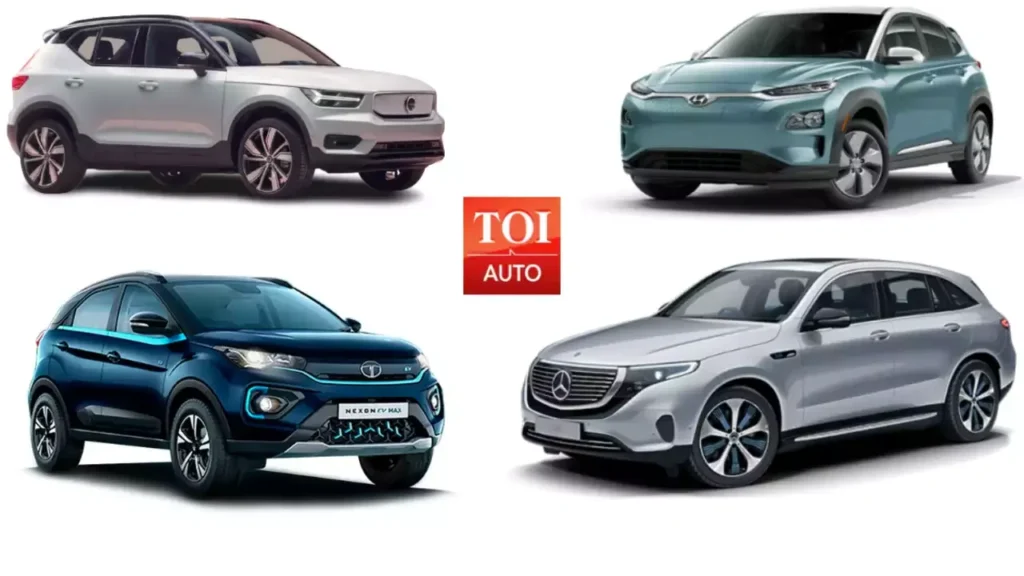
Electric vehicles (EVs) have clear advantages over petrol cars when it comes to EV operating costs. However, some EVs minimize expenses better than others. This guide examines the EV models available in India with the lowest maintenance, charging, and overall running costs.
Table of Contents
Factors Impacting EV Operating Costs
The main factors that influence ongoing EV operating costs or EV ownership costs include:
- Battery size – Bigger battery packs incur more replacement costs but enable greater range per charge. Models with 60-80 kWh batteries optimize both range and cost.
- Energy efficiency – Maximizing km/kWh reduces electricity consumption and charging costs. Aerodynamic, lightweight EVs have the best efficiency.
- Charging speed – Faster charging incurs more wear but enables more convenient public charging. 50-100 kW capability optimizes both.
- Maintenance – Minimal mechanical complexity reduces servicing needs. Single-motor, single-speed gearbox EVs minimize maintenance.
- Warranty – Longer battery and vehicle warranties protect against expensive repairs outside of coverage.
- Segment – Smaller city EVs have lower costs than large luxury SUVs.
We’ll examine EVs available in India through the lens of these key factors to reveal the most affordable options.
Most Affordable Electric City Cars

Compact urban vehicles offer the most budget-friendly options when it comes to both initial buying and ongoing expenses. Some of the leading affordable choices in India, with a particular emphasis on EV operating costs, encompass:
Tata Tiago EV
- 24 kWh battery supports a 250 km range
- 120 km/h top speed via 75 kW motor
- 15 amp charging support
- Low complexity/maintenance
- Expected 6 years battery, 8 years vehicle warranty
MG ZS EV
- 44.5 kWh battery provides 419 km range
- 105 kW motor with a top speed of 140 km/h
- 50 kW fast charging
- 8 years battery warranty
- 5 years vehicle warranty
Tata Tigor EV
- 26 kWh battery for 306 km range
- 55 kW electric motor
- 3.3 kW AC and 15 kW DC charging
- Low servicing needs
- 8-year battery, 4-year vehicle warranty
Mahindra eVerito
- 21.2 kWh battery for 140 km range
- 41 HP motor with a top speed of 120 km/h
- 15 amp AC charging
- Proven low-maintenance powertrain
- 3 years/80,000 km warranty
These affordable city EVs minimize purchase costs, charging needs, and maintenance for low total ownership costs.
Read Also: Uncovering the True EV Ownership Cost: A Comprehensive Analysis
Most Efficient Compact and Midsize EVs

Moving up a size class, these compact and midsize EVs offer excellent efficiency:
Hyundai Kona Electric
- 39.2 kWh battery for 452 km range
- 136 km/h top speed via 100 kW motor
- 17.7 km/kWh real-world efficiency rating
- 7.2 kW AC and 50 kW DC charging
- 8 years/1,60,000 km battery warranty
MG ZS EV
- 44.5 kWh battery provides 419 km range
- 105 kW motor with a top speed of 140 km/h
- 50 kW fast charging
- 16.5 km/kWh efficiency
- 8-year battery warranty
Tata Nexon EV
- 30.2 kWh battery for 312 km range
- 127 km/h top speed via 129 hp motor
- 50 kW fast charging support
- 10 years battery warranty
Kia EV6
- 77.4 kWh battery for 528 km range
- 225 kW motor with 260 km/h top speed
- Ultra-fast 350 kW charging
- 16.5 km/kWh real-world efficiency
- 8 years / 1,60,000 km battery warranty
The combination of good range with excellent energy efficiency minimizes electricity costs for these popular EVs.
Electric SUVs with Lowest Operating Costs

SUVs carry larger batteries, but their extra size accommodates that cost. Top economic electric SUV models include:
MG ZS EV
- 44.5 kWh battery provides 419 km range
- 105 kW motor with 140 km/h top speed
- 16.5 km/kWh energy efficiency rating
- 8 years battery warranty
- 5 years vehicle warranty
Hyundai Kona Electric
- 39.2 kWh battery for 452 km range
- 100 kW motor with a top speed of 155 km/h
- 17.7 km/kWh real-world efficiency
- 8-year battery warranty
- 5-year vehicle warranty
Jaguar I-Pace
- 90 kWh battery for 470 km range
- 294 kW motor with 200 km/h top speed
- Fast 100 kW charging supported
- Competitive 16.3 km/kWh efficiency
- 8 years / 1,60,000 km battery warranty
Volvo XC40 Recharge
- 78 kWh battery for 418 km range
- 150 kW motor with 180 km/h top speed
- 11 kW AC and 150 kW DC fast charging
- Warranty includes 8 years battery, 4 years vehicle
An EV SUV adds cargo flexibility without necessarily raising operating costs over a hatchback or sedan.
Electric Luxury Vehicles with Low Costs

Even luxury models can deliver reasonable operating expenses:
Jaguar I-Pace
- 90 kWh battery for 470 km range
- 294 kW motor with 200 km/h top speed
- 16.3 km/kWh efficiency
- Fast 100 kW charging capability
- 8-year comprehensive warranty
Mercedes EQC
- 80 kWh battery for 450 km range
- 300 kW motor enables 180 km/h top speed
- 11 kW AC and 110 kW DC rapid charging
- Slick aerodynamics provide efficiency
- 8 years/1,60,000 km battery warranty
Audi e-Tron
- 95 kWh battery for 359 km range
- 265 kW motor with 200 km/h top speed
- 150 kW DC fast charging
- 8 years battery warranty, 4 years vehicle warranty
Volvo XC40 Recharge
- 78 kWh battery for 418 km range
- 150 kW motor with 180 km/h top speed
- 11 kW AC & 150 kW DC charging
- 8 years battery, 4 years vehicle warranty
Luxury automakers are strategically designing electric vehicles (EVs) with a dual emphasis on enhancing performance and maximizing efficiency, all with a keen eye on cost containment.
These forward-thinking EVs employ cutting-edge battery technology that significantly reduces the frequency of replacements, resulting in overall operating costs that can compete favorably with those of economy internal combustion engine (ICE) vehicles.
In essence, when evaluating EV operating costs, these luxury offerings demonstrate remarkable competitiveness.
EV Model Cost Analysis Table
Here is a direct cost comparison across a range of electric vehicles available in India:
| Model | Price | Battery | Charging | Efficiency | Range | Warranty |
|---|---|---|---|---|---|---|
| Tata Tiago EV | ₹8.49 Lakhs | 24 kWh | 15 A | 3.5 km/kWh | 250 km | 8 yrs battery, 8 yrs vehicle |
| MG ZS EV | ₹21 Lakhs | 44.5 kWh | 50 kW | 16.5 km/kWh | 419 km | 8 yrs battery, 5 yrs vehicle |
| Hyundai Kona Electric | ₹23.79 Lakhs | 39.2 kWh | 50 kW | 17.7 km/kWh | 452 km | 8 yrs battery, 5 yrs vehicle |
| Tata Nexon EV | ₹14.99 Lakhs | 30.2 kWh | 50 kW | 3.9 km/kWh | 312 km | 8 yrs battery, 3 yrs vehicle |
| Jaguar I-Pace | ₹1.05 Cr | 90 kWh | 100 kW | 16.3 km/kWh | 470 km | 8 yrs battery & vehicle |
| Volvo XC40 Recharge | ₹55.90 Lakhs | 78 kWh | 150 kW | 16 km/kWh | 418 km | 8 yrs battery, 4 yrs vehicle |
As demonstrated, premium-priced electric vehicles (EVs) offset their initial expense by offering extended range, rapid charging capabilities, enhanced efficiency, and comprehensive warranties, all aimed at reducing overall EV operating costs.
Conclusion
While purchase prices remain high, carefully selected EV models offer very reasonable ongoing ownership costs. Their minimal maintenance needs, energy efficiency, warranties, and appreciating resale value offset initial pricing.
Models like the Tata Tiago EV, MG ZS EV, and Hyundai Kona Electric stand out for delivering premium electric driving with limited operating expenses. As the EV market evolves, economic choices will only continue improving.







